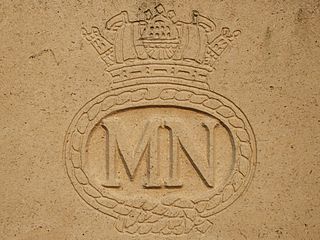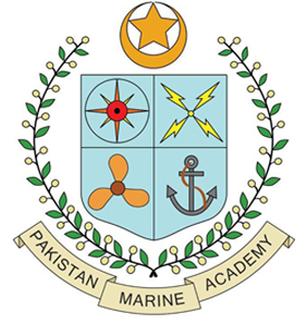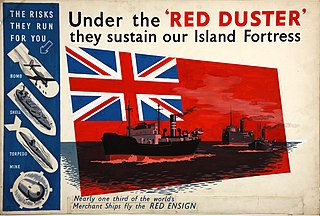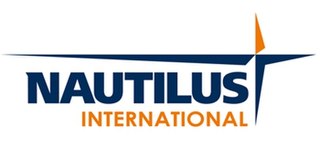This article relies largely or entirely on a single source .(January 2022) |
The National Union of Marine, Aviation and Shipping Transport Officers (NUMAST) was a trade union representing seafarers and allied workers, based in the United Kingdom.
This article relies largely or entirely on a single source .(January 2022) |
The National Union of Marine, Aviation and Shipping Transport Officers (NUMAST) was a trade union representing seafarers and allied workers, based in the United Kingdom.
Nautilus traces its roots back more than 150 years, when the Mercantile Marine Service Association was founded in 1857 in response to the harsh laws of the 1850 Merchant Shipping Act.
In 1936, the MMSA merged with the Imperial Merchant Service Guild and retained its name. Six years later, it became a member of the Officers’ Federation, which was established in 1928 in an attempt to foster cooperation between all the organisations representing British and Commonwealth officers.
Meanwhile, the Association of Wireless Telegraphists was established in 1912 in response to the growing use of telegraphy at sea. Mergers and name changes down the years culminated in the formation of the Radio and Electronic Officers' Union (REOU) in 1967.
Representation for ships' engineers began in the late 19th century, and two unions came together to form the Marine Engineers’ Association (MEA) in 1899.
The Navigating & Engineer Officers' Union (NEOU) was born in the mid-1930s and in 1956, following more than a decade of cooperation on issues of common concern, the MEA and the NEOU joined to form the Merchant Navy & Airline Officers' Association (MNAOA).
The union was established in 1985, when the Merchant Navy and Airline Officers' Association merged with the Radio and Electronic Officers' Union and the Mercantile Marine Service Association. [1]
The union originally included aviation personnel, such as flight navigators and flight engineers, however these members were transferred to BALPA, the airline pilots' union by 1990. [1]
On 2 October 2006, the union formed the Nautilus Federation with the Dutch Federation of Maritime Workers (FWZ), and changed its name to Nautilus UK. FWZ became Nautilus NL at the same time. [1]
In 2008, members of Nautilus UK and Nautilus NL voted overwhelmingly in favour of proposals to create a new single trans-boundary union for maritime professionals, the two merging into Nautilus International on 15 May 2009. [1]

The United States Merchant Marine is an organization composed of United States civilian mariners and U.S. civilian and federally owned merchant vessels. Both the civilian mariners and the merchant vessels are managed by a combination of the government and private sectors, and engage in commerce or transportation of goods and services in and out of the navigable waters of the United States. The Merchant Marine primarily transports domestic and international cargo and passengers during peacetime, and operate and maintain deep-sea merchant ships, tugboats, towboats, ferries, dredges, excursion vessels, charter boats and other waterborne craft on the oceans, the Great Lakes, rivers, canals, harbors, and other waterways. In times of war, the Merchant Marine can be an auxiliary to the United States Navy, and can be called upon to deliver military personnel and materiel for the military.

The British Merchant Navy is the collective name given to British civilian ships and their associated crews, including officers and ratings. In the UK, it is simply referred to as the Merchant Navy or MN. Merchant Navy vessels fly the Red Ensign and the ships and crew are regulated by the Maritime and Coastguard Agency (MCA), a specialist agency of the UK Department of Transport. British merchant ships are registered under the UK or Red Ensign group ship registries. British Merchant Navy deck officers and ratings are certificated and trained according to STCW Convention and the syllabus of the Merchant Navy Training Board in maritime colleges and other training institutes around the UK.

The Hellenic Merchant Navy refers to the merchant navy of Greece, engaged in commerce and transportation of goods and services universally. It consists of the merchant vessels owned by Greek civilians, flying either the Greek flag or a flag of convenience. As of 2020, Greece is the largest ship owner country in the world in terms of tonnage; with a total deadweight tonnage of 364 million tons and 4,901 Greek-owned vessels. Greece is a maritime nation by tradition, as shipping is arguably the oldest form of occupation of the Greeks and a key element of Greek economic activity since the ancient times. Today it is the second largest contributor to the national economy after tourism. The Greek fleet flies a variety of flags; however, some Greek shipowners gradually return to Greece following the changes to the legislative framework governing their operations and the improvement of infrastructure.

Pakistan Marine Academy (PMA) is located at Karachi, Sindh, Pakistan. It is a Seafarers Training Academy, working under Federal Ministry of Maritime Affairs, Government of Pakistan as an autonomous department. It is affiliated with NED University of Engineering and Technology and is also recognised by Higher Education Commission, Pakistan. Pakistan Marine academy covers an area of around 136 acres on the water front in Karachi Harbor, Hawksbay Road.

The Seafarers International Union or SIU is an organization of 12 autonomous labor unions of mariners, fishermen and boatmen working aboard vessels flagged in the United States or Canada. Michael Sacco was its president from 1988 until 2023. The organization has an estimated 35,498 members and is the largest maritime labor organization in the United States. Organizers founded the union on October 14, 1938. The Seafarers International Union arose from a charter issued to the Sailors Union of the Pacific by the American Federation of Labor as a foil against loss of jobs to the Congress of Industrial Organizations (CIO) and its Communist Party-aligned faction.
The maritime history of the United States is a broad theme within the history of the United States. As an academic subject, it crosses the boundaries of standard disciplines, focusing on understanding the United States' relationship with the oceans, seas, and major waterways of the globe. The focus is on merchant shipping, and the financing and manning of the ships. A merchant marine owned at home is not essential to an extensive foreign commerce. In fact, it may be cheaper to hire other nations to handle the carrying trade than to participate in it directly. On the other hand, there are certain advantages, particularly during time of war, which may warrant an aggressive government encouragement to the maintenance of a merchant marine.

A merchant navy or merchant marine is the fleet of merchant vessels that are registered in a specific country. On merchant vessels, seafarers of various ranks and sometimes members of maritime trade unions are required by the International Convention on Standards of Training, Certification and Watchkeeping for Seafarers (STCW) to carry Merchant Mariner's Documents.
The United States merchant marine forces matured during the maritime history of the United States (1900–1999).

Nautilus International is an international trade union and professional association representing seafarers and allied workers, which is based in the United Kingdom, the Netherlands and Switzerland.

The Pakistan National Shipping Corporation (PNSC) is a Pakistani national flag carrier and is one of Government of Pakistan's most profitable state-owned entities, having recorded its highest ever profit under the chairmanship of Rizwan Ahmed of PKR 30 billion. The corporation is principally engaged in the business of shipping, including charter of vessels, transportation of cargo and providing commercial, technical, administrative, financial and other services to its subsidiaries and third parties.

Mercantile Marine Department, Pakistan is an attached department of Ports and Shipping Wing, Karachi under the Ministry of Ports and Shipping, Government of Pakistan. The department was established in 1930 under the Merchant Shipping Act, 1923, which was repealed and replaced with Merchant Shipping Ordinance No. L II of 2001 in 2001. The department is headed by the Principal Officer who is also Registrar of Ships and Superintendent of Light Houses in Pakistan.
The Merchant Navy and Airline Officers' Association (MNAOA) was a trade union representing officers in the United Kingdom.
The Radio and Electronic Officers' Union (REOU) was a trade union representing radio operators on British civilian ships.
The International Mercantile Marine Officers' Association (IMMOA) was a global union federation bringing together trade unions representing officers in merchant navies.
Charles Douglas Smith Tennant CBE was a British trade union leader.
The Federation of Maritime Workers was a trade union representing sailors in the Netherlands.
The Central Organisation of Sailors and Fishermen was a trade union representing seafarers in the Netherlands.
Eric Nevin was a British trade union leader.
Brian D. Orrell is a former British trade union leader.